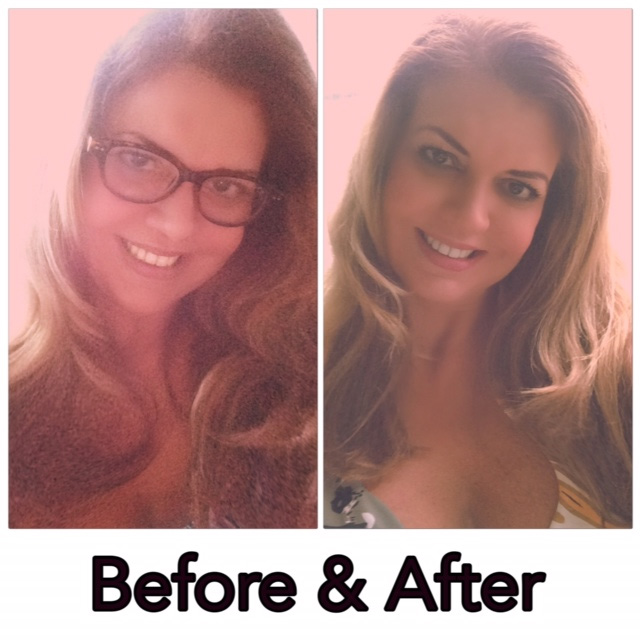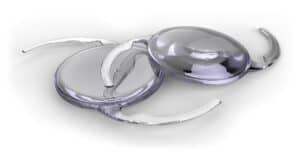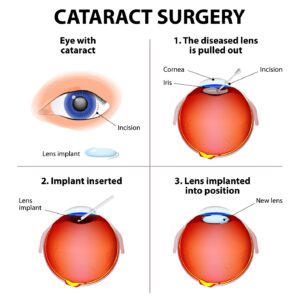Also serving patients in Fort Lauderdale
The surgeons of the Laser Eye Center of Miami are gifted Miami cataract surgery specialists. They offer the newest technology IOLs (intraocular lenses) and the most advanced surgical techniques to their patients. In the paragraphs below they describe cataracts and the cataract surgery procedure to restore sight.

![]() I have no words to express my gratitude to Dr. Gabriel Lazcano and his fantastic staff. Two months ago I got my cataracts removed and I cannot be happier. After the surgery, a found a new world. A world full of colors that I could not remember when was the last time I saw them.
I have no words to express my gratitude to Dr. Gabriel Lazcano and his fantastic staff. Two months ago I got my cataracts removed and I cannot be happier. After the surgery, a found a new world. A world full of colors that I could not remember when was the last time I saw them.
I highly recommend Dr. Lazcano not only as a very skilled and experienced professional but also as a wonderful caring doctor. Since I was 30 I had cataracts and it took me a while to realize I needed help. I am so happy I made the decision with the perfect professional that not only removed my cataracts but also fixed the myopia allowing me to enjoy life in an easier way. No more contacts for me, not more blurriness. Life is wonderful. If someone is considering cataracts surgery, I highly recommend Dr. Lazcano. The procedure is painless and you will leave the operating room with new eyes and ready to enjoy the colors of the world. My gratitude to all, I can’t be happier!![]()
What is a cataract?

A cataract is a clouding of the crystalline lens inside the eye. This lens works like the lens in a camera. It is located just behind the iris which is the colored part of the eye. It focuses the image in the retina which sends it to the brain. The human lens is made mostly of protein and water. The protein keeps the lens clear and lets light pass through it. With age some of the protein may clump together and start to cloud a small area of the lens which causes blurry vision. With time it grows denser and as it does it makes it harder for images to focus on the retina.
Most cataracts are age related. However, there are other types of cataract:
- Secondary cataract. Cataracts can form after surgery for other eye problems, such as glaucoma. Cataracts also can develop in people who have other health problems, such as diabetes, or due to prolonged steroid use.
- Traumatic cataract. Cataracts can develop after an eye injury, sometimes years later.
- Congenital cataract. In some cases babies are born with cataracts or develop them in childhood, often in both eyes. These cataracts may be so small that they do not affect vision. If they do, the lenses may need to be removed.
- Radiation cataract. Cataracts can develop after exposure to some types of radiation.
What can be done?
Cataracts can be surgically removed in an outpatient procedure. For this type of surgery the eye is anesthetized with drops, a small incision is made, ultrasound is used to remove the cataract and an intraocular lens is inserted. The majority of patients are awake during surgery, but a mild sedative is given to them to relax them. After surgery, the vision is slightly blurry but clears rapidly. In most of the cases normal activities can be resumed one day after surgery. Cataract surgery is very successful. More than 95 percent of people who have their cataracts removed have no complications and enjoy improved vision.
When is the best time for cataract surgery?
Cataract surgery is an elective procedure. The decision to have cataract surgery is one that the patient and the eye doctor should make together. In most cases, waiting to have surgery won’t harm your eye. However, considering the benefits of this procedure it is a step most of our patients take once they’re diagnosed.
The decision is usually based on how much the cataract affects your life.
The following are common complaints of patients with cataracts.
The most common symptoms of a cataract are:
- Cloudy or blurry vision.
- Colors seem faded.
- Glare. Headlights, lamps, or sunlight may appear too bright. A halo may appear around lights.
- Poor night vision.
- Inability to drive at night.
- Can’t read for prolonged periods of time.
- Double vision or multiple images in one eye. (This symptom may clear as the cataract gets larger.)
- Frequent prescription changes in your eyeglasses or contact lenses.
Since these can be a sign of other eye problems, if you have any of these symptoms you should be checked by an eye care professional.
Your Options:
One of the benefits of cataract surgery today, is the fact that there are many options available for lens implants. There is the option of single-vision lens implants, the multifocal lens and Toric multifocal lens.
1.State-of-the-art Tecnis multifocal and the Tecnis Toric multifocal lenses have been specially designed with multifocal zones that provide good vision at near, far and in between.

2.Single-vision and Toric lens implants which correct distance vision and usually require the use of reading glasses. The Toric IOL simultaneously corrects astigmatism, an irregularity in the surface of the cornea.
3.Monovision is where the implants correct for distance in one and near the other eye.
In addition to being an outstanding cataract surgeon, Dr. Lazcano is well known as Miami and Ft. Lauderdale LASIK specialist. Please visit this page to learn more about this procedure.
Cataract Surgery FAQs

What is cataract surgery recovery like?
You will notice immediate improvement in your vision since your eye will no longer have a cloudy lens obstructing your sight. However, complete recovery can take a few days or even a few weeks. You may take prescribed or over-the-counter pain medication to manage any discomfort; pain from this surgery is typically minimal.
When do I need to start worrying about cataracts?
Cataracts can be found in patients of any age (even some babies are born with cataracts), though the cataracts do not become significant until after the age of 60. Since cataract symptoms can be hard to detect while in their early stages, scheduling routine eye exams is an important part of maintaining proper eye health.
Do I have to have cataract surgery?
Cataracts get worse over time. They will eventually impair your ability to drive, read or see at night. Cataract surgery is an elective procedure, which means it is entirely up to you when to have it..
How long does cataract surgery last?

The procedure is typically completed in 10 minutes or less. You will need to arrive at the surgery center early to have your eyes dilated. You will also need to stay for some time after surgery so that your doctor can verify that the procedure has been successful.
Can I get cataracts again after having surgery?
Cataracts cannot return after you have surgery. Another benefit is that IOLs are durable and designed to last for a lifetime.
Am I allowed to drive myself home after cataract surgery?
Because sedatives are provided to keep you comfortable during your procedure, you will be unable to drive home following cataract surgery. Plan to have someone bring you home from the surgery center. The good news is that most patients feel well enough and see well enough to resume driving by the next day.
Will I need to wear glasses after cataract surgery?
Your need for prescription eyewear will depend on the type of IOLs you have selected. Laser Eye Center of Miami offers multiple types of IOLs, some of which can help to correct refractive errors, thereby allowing you to see without glasses or contact lenses. Discuss IOL options with your surgeon during the consultation.
How can I prevent cataracts?
The exact cause of cataracts remains unknown, though we do know that aging, sun exposure, smoking, obesity and high blood pressure can increase your risk of developing cataracts. Thankfully, laser cataract surgery is a famously easy and effective procedure, capable of restoring your vision.
In addition to being gifted cataract surgeons, our surgeons are also well known as Miami and Ft. Lauderdale LASIK specialists. Please visit this page to learn more about this procedure.







